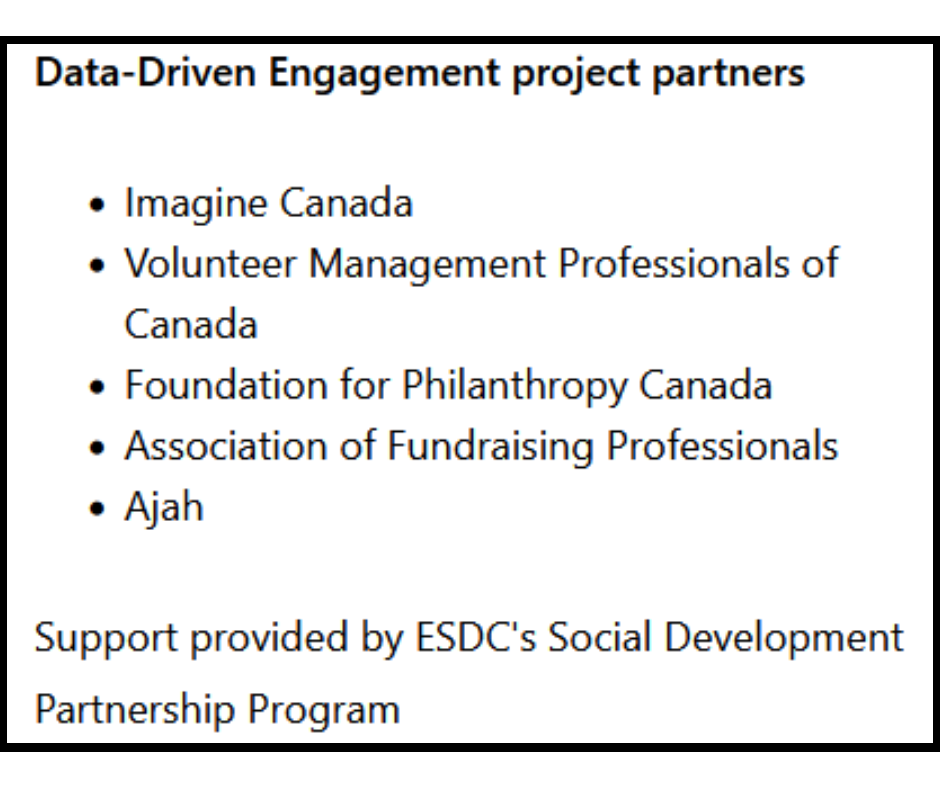
On January 24, 2024, more than 350 people gathered online for a presentation hosted by Volunteer Canada as part of the Data-Driven Engagement project: “How to Harness the Power of Data: Data as a Catalyst for Community Change.”
Introducing the session, Dr. Megan Conway, President and CEO of Volunteer Canada, said the goal was to have a conversation about how to advance a data-informed movement. This includes exploring how the charitable and social purpose sectors can use data to make decisions and support the work that they do.
Three panellists—Natalie Napier (InWithForward), Narinder Dhami (The New Power Labs) and Erin Spink (Spinktank)—tackled some important questions about how the sector could use data to inform their work.

Responding to a question about how they use data to drive success in their work, Napier said, “Knowledge is transformative when it can be shared and understood in the context of trusting alliances.” Dhami added that “data is an enabler of transparency, credibility and trust” that helps her organization better understand what is underfunded and overlooked and to determine who to partner with and how to work with those partners. In the past, Spink said, the volunteer engagement sector has underused data, approaching it in a transactional and fairly simplistic way. Instead, data should be viewed as a “driver of advocacy and the success of the volunteer sector.”
The panellists were unanimous in their belief that data collection processes need to be representative and inclusive. Dhami added that it is important to analyze data from an intersectional perspective and said that the way data is disseminated often does not recognize and account for the intersectionality of social identities. Spink reminded the participants that it is also imperative that data collection and dissemination do not reinforce divisive power dynamics.
All the panellists also agreed that there is always the need for more data. Spink likened volunteering to “the canary in the coal mine,” saying that volunteering trends could be proxies for trends in other forms of civic participation (e.g., voter turnout, trust in institutions). Dhami added that the definition of civic participation has changed over time and reminded people of the need for the data that is collected to keep up with the different ways that different groups are showing up in the civic arena.
The session concluded with Shaminda Perera of Volunteer Canada guiding the participants through the Canadian Knowledge Hub for Giving and Volunteering. There are currently five data sets included on the site:
- General Social Survey on Giving, Volunteering and Participating
- The Satellite Account of Nonprofit Institutions
- Business Conditions Survey (coming soon)
- Grants and Contributions
- T3010
The data, which in some cases can be filtered by province/territory, is presented in a way that is easy to understand and use.
Visit www.givingandvolunteering.ca to find out more about the Hub.
Visit this link to watch the full conversation on YouTube: https://youtu.be/Ywh4s-tj2Sk
